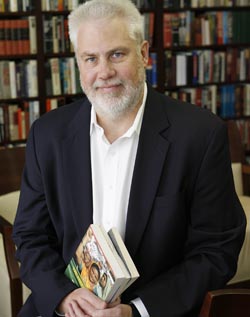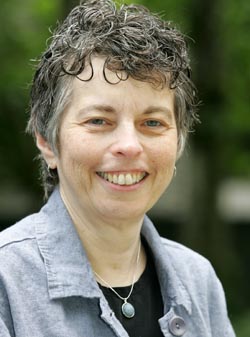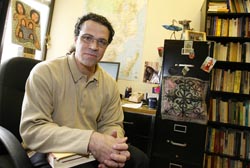Temple University Religion experts offer thoughts on papal visit
|
||||||||||||
|
DAVID HARRINGTON WATT, associate professor of history, specializes in United States religious, intellectual and cultural history. Placing the visit within the context of contemporary America, Watt noted that Pope Benedict XVI is visiting the United States at an interesting juncture in its history. |
 Photo by Joseph V. Labolito/Temple University
Watt
|

